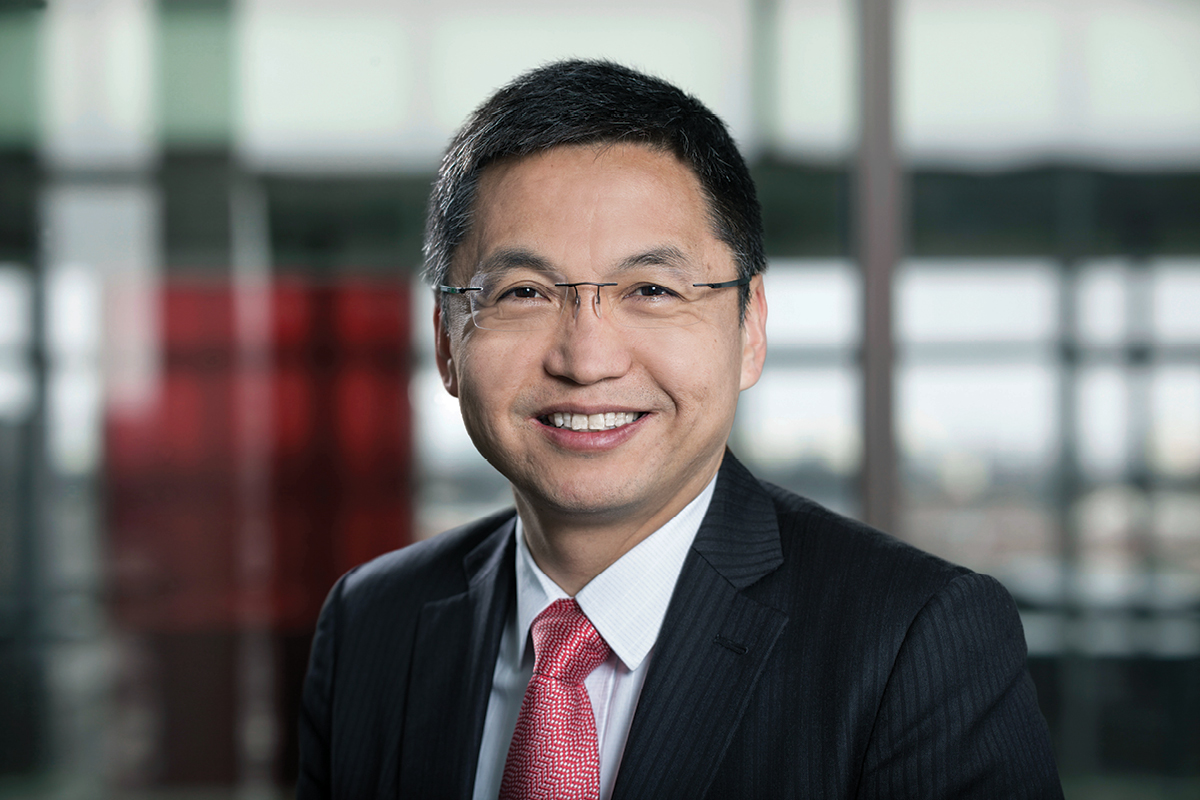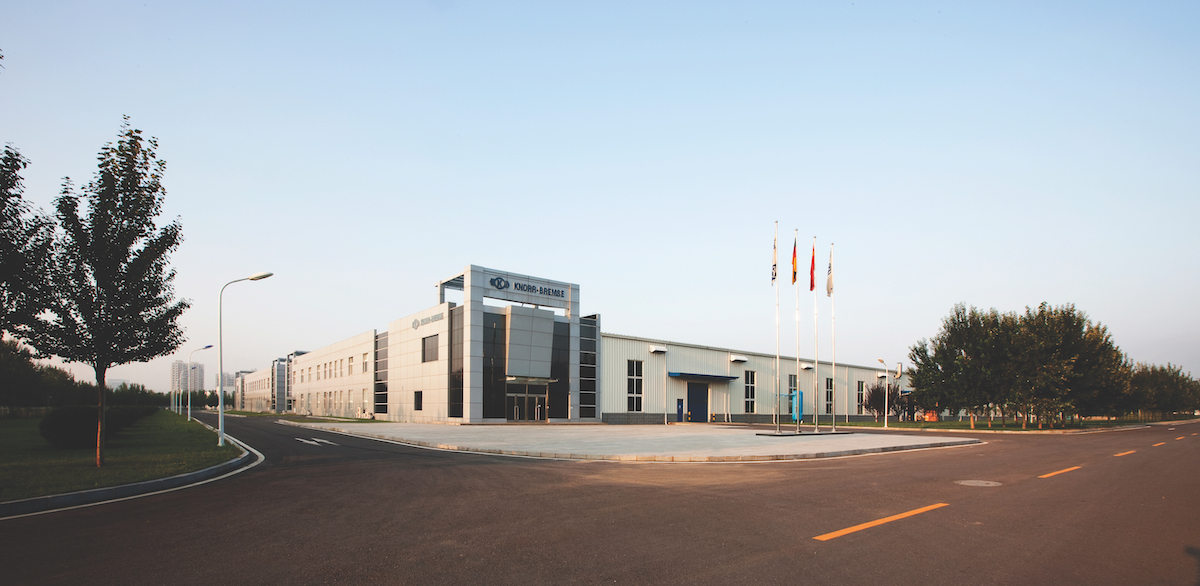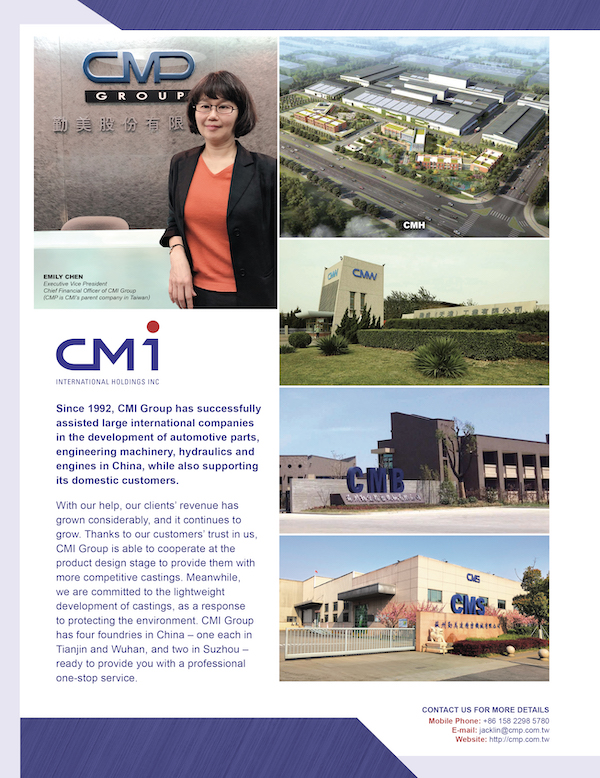Regardless of whether you’re travelling by car, bus, truck or train, brakes are the single most important safety feature of a vehicle. As the world’s leading manufacturer of braking systems and a leading supplier of safety-critical subsystems for rail and commercial vehicles, Knorr-Bremse feels the weight of this responsibility.

“The entire company has a vision of making mobility safe,” Baoping Xu, President of Asia–Pacific Commercial Vehicle Systems at Knorr-Bremse, says. “Every day, more than one billion people around the world travel on trains, trucks or buses that use our brake components. We care about the wellbeing of those people, so we want to make mobility safe.”
Indeed, for nearly 115 years, Knorr-Bremse has pursued a single mission: to make mobility on roads and railways safe, sustainable and environmentally friendly.
The business was founded in 1905 by Georg Knorr, who invented the Knorr K1 rapid-action brake, which brought passenger trains to a halt faster and more safely.
Given the perils of braking long, heavy freight trains, the mechanical engineer diverted his attention to this area. In the early 1900s, freight trains carried brakemen, who stood on the outside platforms of the cars. Once they received a signal from the locomotive engineer, it was their responsibility to apply the brakes manually by turning a wheel as fast as they could.
The company reached a turning point in 1918 with the launch of the Kunze-Knorr freight train brake. They soon became the sole supplier of new brakes for freight trains in Germany and other European countries. As a result, Knorr-Bremse contributed to a significant drop in the number of accidents.
“Knorr-Bremse was the first company to develop air brakes for freight trains,” Baoping notes. “Just as we did 100 years ago, we have continued to lead the way in developing product innovations for braking systems for the rail, truck and bus industries.”
Knorr-Bremse quickly grew to become the largest brake manufacturer for rail vehicles in Europe and soon expanded its operations into other commercial vehicles. By the end of the 1930s, 90 per cent of German trucks of 7–16 tonnes were equipped with Knorr-Bremse braking systems.
With its headquarters in Munich, the company now has about 100 locations in more than 30 countries and employs 29,000 people. Innovation continues to play a key role in Knorr-Bremse today, as it seeks to capitalise on global megatrends such as urbanisation, eco-efficiency, digitalisation and automated driving.
“Product innovation is essential and gives us a point of difference in the marketplace. We monitor the industry very closely,” Baoping says. “We never stop working to develop new innovations to make our customers’ products safer and more efficient.”

Baoping acknowledges the important role that the company’s key suppliers play in helping Knorr-Bremse develop new technologies. He points to a recent collaboration with Continental as an example of how such a partnership can bring added value to the business.
“We are working with them to combine our commercial vehicle know-how with their technology to develop turnkey system solutions for highly automated driving (HAD) in commercial vehicles,” Baoping says.
Under the partnership, Knorr-Bremse supplies redundant actuator systems for brakes and steering and is responsible for the overall system integration, focusing more on braking, steering and integration of the entire system.
Knorr-Bremse is working with its partner to offer HAD solutions for trucks, particularly in the field of automated convoy driving (platooning).
One of the major benefits of platooning is that it can reduce fuel consumption by up to 15%, thereby also reducing vehicle emissions. Of course, automating driving functions such as changing lanes and emergency braking can improve the safety of commercial vehicles as well.
Baoping’s best piece of advice:
“I have been given a lot of advice from my mentors in business, but the best piece I have ever heard was from Steve Jobs, who said: ‘Stay hungry. Stay foolish.’ It wasn’t given to me personally, but I have taken it on board, and I remind myself of this often.”
This is also a reflection of the company’s mission to make mobility safe. “We have been very closely monitoring the industry and we play an integral part in reshaping transportation in line with today’s megatrends,” Baoping explains.
As Knorr-Bremse becomes a global supplier not only for driver assistance but also for HAD solutions, Baoping highlights its acquisition of Hitachi Automotive Systems’ commercial vehicle steering business, Integral Power Steering (IPS), in April as an important milestone.
Japan-based IPS is a major supplier of power-steering parts for commercial vehicles. Baoping says this acquisition will help Knorr-Bremse continue to develop highly integrated systems and new technologies associated with driver assistance and automated driving.
“It’s very exciting,” he smiles. “It’s a great opportunity for us to grow our sales in the automation industry.”
Proudly supported by:



